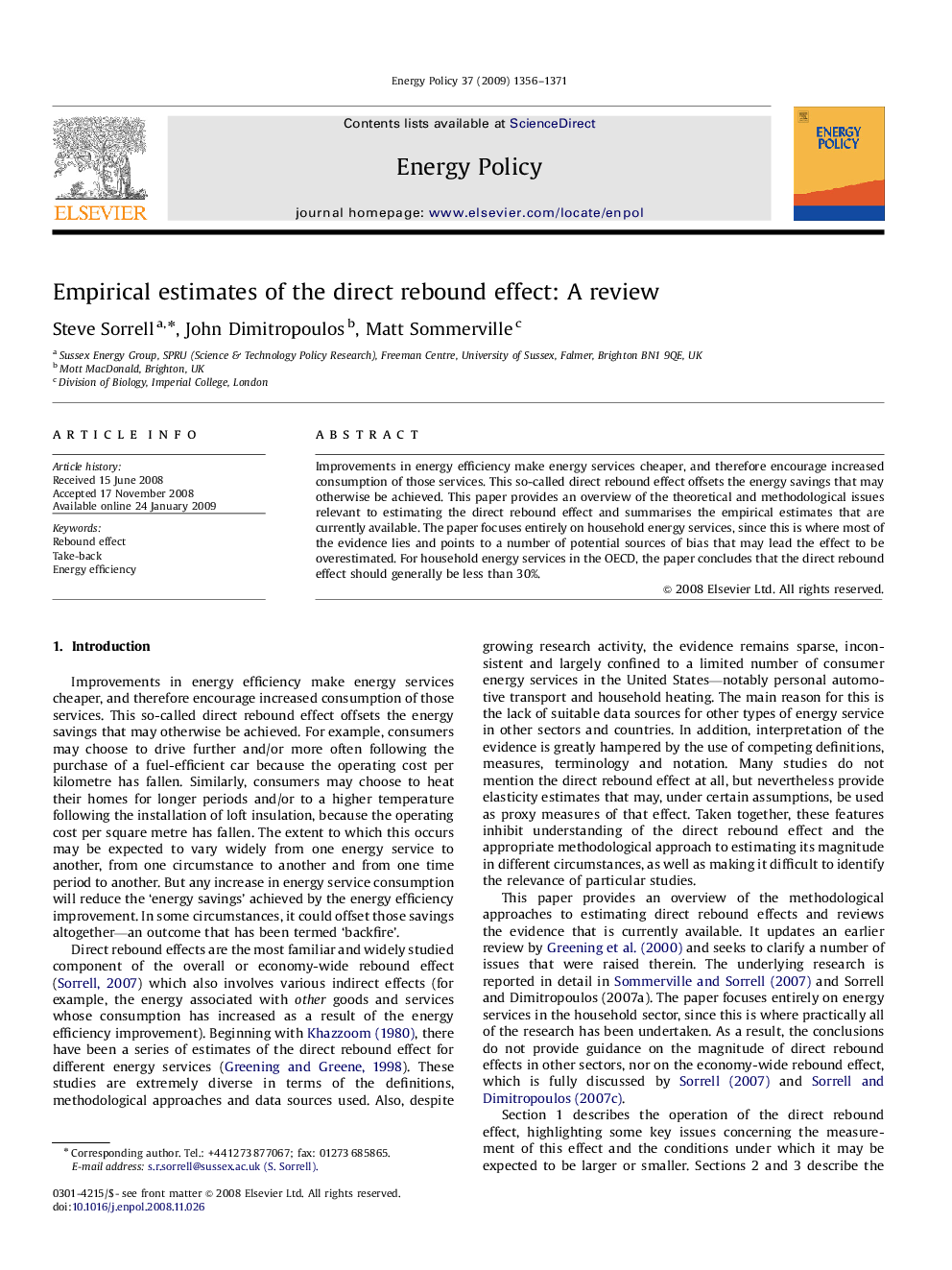| Article ID | Journal | Published Year | Pages | File Type |
|---|---|---|---|---|
| 996975 | Energy Policy | 2009 | 16 Pages |
Abstract
Improvements in energy efficiency make energy services cheaper, and therefore encourage increased consumption of those services. This so-called direct rebound effect offsets the energy savings that may otherwise be achieved. This paper provides an overview of the theoretical and methodological issues relevant to estimating the direct rebound effect and summarises the empirical estimates that are currently available. The paper focuses entirely on household energy services, since this is where most of the evidence lies and points to a number of potential sources of bias that may lead the effect to be overestimated. For household energy services in the OECD, the paper concludes that the direct rebound effect should generally be less than 30%.
Keywords
Related Topics
Physical Sciences and Engineering
Energy
Energy Engineering and Power Technology
Authors
Steve Sorrell, John Dimitropoulos, Matt Sommerville,
